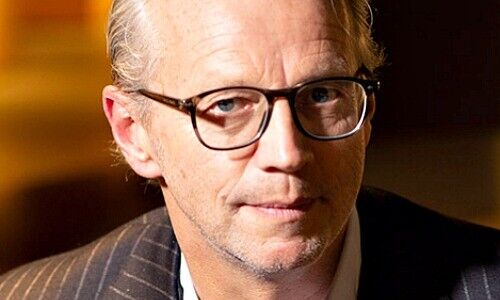Michael Bornhaeusser: «Nobody Wants to Be a Pandemic Profiteer»
«Pandemic profiteer» stands a good chance of becoming the taboo expression of the year, says Michael Bornhaeusser in his essay for finews.first. As a venture capitalist, you don’t really want to belong to that category, but in 2020, everything is different, he says.
This article is published on finews.first, a forum for authors specialized in economic and financial topics.
If you invest in digital innovation, you have come pretty close to it in the corona-year of 2020. And if you happen to be invested in the booming industry of e-sports, some might suggest that you aim to make money out of the pandemic. I have to admit that this isn’t that far off the mark.
Bulb Capital invested a little over $5 million in NRG Esports, one of the leading e-sports organizations – in the middle of the corona pandemic. How come?
A restriction to contacts, home office, lockdowns, distance learning, the closure of bars and clubs. It became apparent as early as April that this would prompt a digital push in society, across the globe. It looked like an opportunity and one of Bulb’s investment focus is digital media, which play a leading role in terms of growth during the current pandemic.
«There was quite a response»
In April, my business partner Dominik Joos and I engaged with our network in the U.S. and England, inquiring about who in the sphere of digital media needed more capital. There was quite a response to this, both from news organizations, investor information services, streaming firms, and others.
The e-sports business convinced us the most. During the lockdown, there may have been no major e-sports events and gaming trade fairs, but the number of users exploded and the big e-sports organizations turned from being more or less gamer-dominated underground communities into professionally managed media firms with a global reach.
Back in 2019, e-sports was already big business with total revenues of $1.09 billion. In pandemic 2020, experts expect an increase in the region of 50 percent to about $1.5 billion. Goldman Sachs has forecast further growth for 2022 and revenues of $2.5 billion.
«League of Legends, Fortnite, RocketLeague, Counterstrike and Call of Duty are the big players»
The number of users across the globe this year has grown to almost half-million, an increase of 11.7 percent from a year earlier. That may not sound like a dramatic increase. But if one considers the consumption on a daily basis, the increase corresponds to almost 70 percent, from 1.8 million to 3.6 million. The number of hours of e-sports consumption has jumped from 3.6 billion in 2019 to 4.9 billion in the current year.
The streams of the gamers, competitions, and practice sessions are transmitted via the Twitch and Youtube platforms and both platforms and providers – the e-sports organizations and competition organizers – share the advertising revenue. This shows that the longer the users spend watching streams, the higher the advertising revenue for the platforms gets.
One might think that e-sports games such as FIFA21, Formula 1 and others are crowd pullers in our region of the world. Not so. Globally, the e-sports leagues and tournaments of the League of Legends, Fortnite, RocketLeague, Overwatch, Counterstrike and Call of Duty are the big players – with a combined share of users of about 40 percent. By comparison, FIFA21 only has a 3 percent share of the viewer total.
«Sports-, music- and filmstars are part of the business»
In relation to teams, the biggest development occurred in e-sports over the past years. Until a few years ago, e-sports teams were organizations around a top-gamer who also more or less ran the company and who did quite well from the income generated through price money, some advertising from streaming platforms, and some sponsors – today, things have changed dramatically.
Now, it is all about big teams, so-called orgs, that play in different leagues with specific teams. They have professional management complete with marketing, content-production, film studios, exercise facilities, advertising sales departments and – highly important – they are financed predominantly by venture-capital investors and family offices as well as strategic partners from their own industry (producers of game soft- and hardware).
Prominent sports-, music- and filmstars are part of the business, acting as investors and ambassadors. Having been a sports management business, the industry is now turning into a media business with its content channels as well as game and community events, brand development and partnerships as well as talent management and marketing.
«NRG is world champion in the Rocket League and has the most successful team in Call of Duty»
The leading e-sports organizations are investing successfully in their own media brands. It is fully possible that the next «Disney» will be an e-sports brand – if Disney isn’t taking over that brand before.
NRG Esports is one of the world’s five biggest e-sports organizations and has teams in six different games and leagues. NRG is world champion in the Rocket League, league champion in Overwatch, and has the most successful team in Call of Duty. The company has its own marketing and talent management firm called Ader, operates two community centers in Los Angeles and New Jersey, and organizes its own tournaments and events. A broad base among advertising partners and sponsors is supporting the various teams.
«There will be consolidation in the industry, with takeovers and mergers»
Among the big organizations, NRG Esports probably has the most experienced management team onboard. Andy Miller, the founder and CEO, used to work as an entrepreneur in mobile advertising and sold his firm to Apple, where, as head of mobile advertising, he was reporting to Steve Jobs. NRG Esports currently has 16 million followers, who spend more than 22 million hours watching the many teams of NRG via platforms such as Twitch every month.
As a venture-capital investor, you need to predict the timing and potential valuation at the point of exit. Over the next three years, there will be two developments: the big e-sports organizations with a strong brand and a professional management team will pull away from the smaller orgs and turn into important media brands. Secondly, there will be a consolidation in the industry, with takeovers and mergers.
Tie-ups between Asian and American e-sports companies would make a lot of sense and, of course, the big ones will buy the smaller ones. For the Disneys and Viacoms of this world, the segment is a logical expansion of their reach, especially in a young and dynamic business with high rates of growth. We will for sure see some takeovers soon.
Also, the growth of the business has been given a substantial boost by the pandemic. Strong growth would have come about without the crisis, but it would have been less dynamic for sure.
Michael Bornhäusser is the chairman and managing partner at Bulb Capital, a Swiss venture capital firm founded in 2019. Previously, he led the private-equity and products business of Swiss private bank Sallfort. In the 1990s, Bornhaeusser worked as an entrepreneur in IT. He co-founded Pixelpark, which went public in 1999. Since the start in 2019, Bulb has invested $180 million in 12 startups in the U.S., the U.K., and Latin America, participating in 16 rounds of financing and achieving successful exits.
Previous contributions: Rudi Bogni, Peter Kurer, Rolf Banz, Dieter Ruloff, Werner Vogt, Walter Wittmann, Alfred Mettler, Robert Holzach, Craig Murray, David Zollinger, Arthur Bolliger, Beat Kappeler, Chris Rowe, Stefan Gerlach, Marc Lussy, Nuno Fernandes, Richard Egger, Maurice Pedergnana, Marco Bargel, Steve Hanke, Urs Schoettli, Ursula Finsterwald, Stefan Kreuzkamp, Oliver Bussmann, Michael Benz, Albert Steck, Martin Dahinden, Thomas Fedier, Alfred Mettler, Brigitte Strebel, Mirjam Staub-Bisang, Nicolas Roth, Thorsten Polleit, Kim Iskyan, Stephen Dover, Denise Kenyon-Rouvinez, Christian Dreyer, Kinan Khadam-Al-Jame, Robert Hemmi, Anton Affentranger, Yves Mirabaud, Katharina Bart, Frédéric Papp, Hans-Martin Kraus, Gerard Guerdat, Mario Bassi, Stephen Thariyan, Dan Steinbock, Rino Borini, Bert Flossbach, Michael Hasenstab, Guido Schilling, Werner E. Rutsch, Dorte Bech Vizard, Adriano B. Lucatelli, Katharina Bart, Maya Bhandari, Jean Tirole, Hans Jakob Roth, Marco Martinelli, Thomas Sutter, Tom King, Werner Peyer, Thomas Kupfer, Peter Kurer, Arturo Bris, Frederic Papp, James Syme, Dennis Larsen, Bernd Kramer, Ralph Ebert, Armin Jans, Nicolas Roth, Hans Ulrich Jost, Patrick Hunger, Fabrizio Quirighetti, Claire Shaw, Peter Fanconi, Alex Wolf, Dan Steinbock, Patrick Scheurle, Sandro Occhilupo, Will Ballard, Nicholas Yeo, Claude-Alain Margelisch, Jean-François Hirschel, Jens Pongratz, Samuel Gerber, Philipp Weckherlin, Anne Richards, Antoni Trenchev, Benoit Barbereau, Pascal R. Bersier, Shaul Lifshitz, Klaus Breiner, Ana Botín, Martin Gilbert, Jesper Koll, Ingo Rauser, Carlo Capaul, Claude Baumann, Markus Winkler, Konrad Hummler, Thomas Steinemann, Christina Boeck, Guillaume Compeyron, Miro Zivkovic, Alexander F. Wagner, Eric Heymann, Christoph Sax, Felix Brem, Jochen Moebert, Jacques-Aurélien Marcireau, Ursula Finsterwald, Claudia Kraaz, Michel Longhini, Stefan Blum, Zsolt Kohalmi, Karin M. Klossek, Nicolas Ramelet, Søren Bjønness, Lamara von Albertini, Andreas Britt, Gilles Prince, Darren Willams, Salman Ahmed, Stephane Monier, and Peter van der Welle, Beat Wittmann, Ken Orchard, Christian Gast, Didier Saint-Georges, Jeffrey Bohn, Juergen Braunstein, Jeff Voegeli, Fiona Frick, Stefan Schneider, Matthias Hunn, Andreas Vetsch, Fabiana Fedeli, Marionna Wegenstein, Kim Fournais, Carole Millet, Ralph Ebert, Swetha Ramachandran, Brigitte Kaps, Thomas Stucki, Teodoro Cocca, Neil Shearing, Claude Baumann, Guy de Blonay, Tom Naratil, Oliver Berger, Robert Sharps, Tobias Mueller, Florian Wicki, Jean Keller, Fabrizio Pagani, Niels Lan Doky, Karin M. Klossek, Ralph Ebert, Johnny El Hachem, Judith Basad, Katharina Bart, Thorsten Polleit, Beat Wittmann, Bernardo Brunschwiler, Peter Schmid, Karam Hinduja, Stuart Dunbar, Zsolt Kohalmi, Raphaël Surber, Santosh Brivio, Gérard Piasko, Mark Urquhart, Olivier Kessler, Bruno Capone, Peter Hody, Lars Jaeger, Andrew Isbester, Florin Baeriswyl, and Michael Bornhaeusser, Agnieszka Walorska, Thomas Mueller, Michael Welti, Ebrahim Attarzadeh, Marcel Hostettler and Hui Zhang.

























